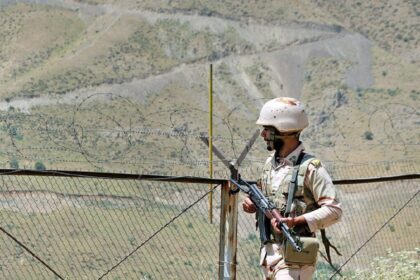RASC News Agency: A horrifying act of domestic violence has shaken Herat province, where a 45-year-old man allegedly murdered his wife in a savage knife attack. The incident occurred on Thursday, May 23, in the Islam Qala district of Kohsan, a region now plagued by increasing lawlessness and impunity under the Taliban’s hardline regime. The alleged perpetrator, identified as Haji Shah Rahmani, a resident of the Islam Qala border town, is reported to have stabbed his wife multiple times in what sources describe as a barbaric and deliberate killing. Following the attack, Rahmani fled the scene and remains at large. Taliban-run security forces, often preoccupied with policing ideological dissent and silencing women’s voices, have so far failed to detain him.
Though the precise motive behind this femicide remains unclear, local observers point to a broader, systemic collapse that has allowed such violence to fester. The erosion of judicial accountability, the widespread economic despair, and the Taliban’s relentless repression of women’s rights have created a toxic environment in which domestic violence thrives unchecked. In recent years, particularly since the Taliban’s resurgence in 2021, Afghanistan has witnessed a disturbing spike in gender-based violence. The regime’s ideological war against women manifested in their exclusion from education, employment, and public space has emboldened male perpetrators while rendering women invisible, voiceless, and defenseless.
Herat, once a cultural and intellectual hub of western Afghanistan, has become emblematic of this broader decline. What was once a city of scholars, artists, and professionals is now suffocating under a regime that enforces silence through fear and claims religious legitimacy while systematically violating every ethical tenet of Islam. Social experts note that structural violence, fueled by economic destitution, psychological trauma, and state-sanctioned misogyny, lies at the root of such heinous crimes. In areas like Islam Qala, where basic services have collapsed and justice is inaccessible, women face abuse not just in private but as a condition of life itself.
This brutal killing has reignited concern among civil society groups, who warn that under Taliban rule, Afghanistani women are no longer just second-class citizens they are targets. With courts that no longer prosecute, police that no longer protect, and a regime that denies women even the right to speak, justice for victims like this murdered wife remains a distant dream. The Taliban’s regime, far from restoring order, has ushered in a new era of lawlessness wrapped in the facade of religious piety. Behind this veil lies a system designed to disempower, dehumanize, and erase women from the Afghanistani national fabric. Crimes like the Herat femicide are not aberrations; they are the logical result of state policy that legitimizes violence through silence.
Unless the international community and Afghanistani civil forces unite in resistance, the list of nameless, silenced women will only grow longer with each case a tragic testament to a nation held hostage by fundamentalism.






